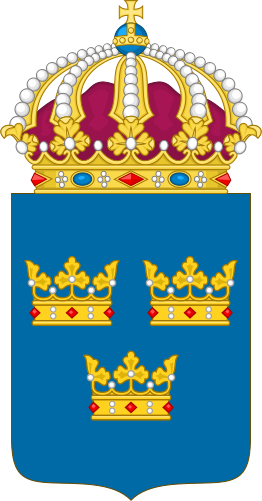Community / Land projects / UNJHRO, programme support
UNJHRO, programme support

€0
01/22 - 06/25
Actief
This project is part of
Implementing Organisations
Donors
Data Providers
General
UNJHRO (JHRO) monitors the human rights situation in the DRC and Sweden has been supporting their office since 2016 with two different contributions. According to the embassy, and the international community at large in DRC, the JHRO is the strongest human rights actor in DRC and therefor the embassy wants to support the office. The JHRO is a joint office between the OHCHR and the human rights section of the Monusco mission in DRC. In addition JHRO is working closely with UNDP in providing training in human rights to the Army and the Police and they are also closely connected in the take-over in the withdrawal of MONUSCO. Monusco has initiated its drawdown in view of eventually leaving the country. The JHRO branches will stay in many locations and will be one of the last offices to leave. I The grant will be a general support for the country programme however there will be some soft earmarking towards areas that Sweden wants to see prioritised. The intervention will focus on the following objectives: 1. Strengthening rule of law and accountability for human rights violations 2. Enhancing and Protecting Civic Space and People’s Participation 3. Enhancing equality and countering discrimination - address leaving no one behind and root causes of inequality 4. Integrating human rights in sustainable development 5. Early warning, prevention and protection of HR in situations of conflict 6. Increasing implementation of the international human rights mechanisms
Objectives
The UNJHRO has identified a number of priorities of action as reflected in its work programme in six pillars (areas of action). These pillars are: The JHRO country programme includes six focus areas: 1. Strengthening rule of law and accountability for human rights violations JHRO is supporting Congolese authorities in the fight against impunity through technical, logistical and financial support to the military and civilian justice systems. The purpose is to ensure that perpetrators of serious human rights violations and violations of international humanitarian law are brought to justice. As part of this effort actions are also taken to support transitional justice initiatives aimed at consolidating peace and justice among communities. JHRO is also engaged in the prevention and response to conflict-related sexual violence (CRSV) through the Women Protection Advisors (WPAs) deployed within the JHRO and through it's support to the Senior Women Protection Advisor (SWPA). The latter undertakes high level advocacy to support the FARDC and PNCs implementation of Actions Plans to prevent violations, ensure accountability for perpetrators and assistance to affected survivors. 2. Enhancing and Protecting Civic Space and Peoples Participation JHRO is supporting capacity building and development of policies and programmes towards the promotion and protection of human rights in the DRC. One part of this support targets national human rights institutions while the other aim at strengthening networks of human rights defenders and CSOs involved in defending various human rights. Joint protection mechanisms are put in place through coordination with protection networks, UN agencies, international NGOs and local partners across the DRC. 3. Enhancing equality and countering discrimination - address leaving no one behind and root causes of inequality JHRO is also enhancing advocacy with national institutions for inclusion of vulnerable groups, minorities including indigenous people and people with special needs. In addition JHRO is collaborating with the Government on legislation related to the rights of persons with disabilities (PwD) and is supporting advocacy of minority groups such as the need of indigenous people are taken into account in the land reform. 4. Integrating human rights in sustainable development JHRO is paying particular attention on reinforcing understanding, protection and respect of human rights principles and standards, including economic, social and cultural rights (ESCRs) and business and HR principles. Within these efforts special attention is given to marginalized groups and women. JHRO also has a role in the integration of the human rights norms, recommendations and SDGs with the UNSDCF as well as in the UNCT coordinated responses, including through the Humanitarian Advisory Group and the Triple Nexus. 5. Early warning, prevention and protection of HR in situations of conflict In addition to strengthening the judiciary and ending impunity JHRO also have a mandate to protect civilians and improve their safety, in coordination with MONUSCO civilian and uniformed components, UN and civil society partners. An important part of this work is to continuously monitor the human rights situation and ensure early warning systems that can inform response measures. JHRO also supported the establishment of FARDC and PNC follow-up committees for human rights violations within their organisations. In addition OHCHR manages a robust database with profiles of personnel from defense and security services which is used help in the screening process before new staff are employed by FARDC. Furthermore JHRO provides training and sensitization for DRC defense and security forces on Human rights due diligence policy and human rights and international humanitarian law. 6. Increasing implementation of the international human rights mechanisms JHRO is also strengthening institutions and CSOs capacity on reporting to the human rights mechanisms through capacity building and sensitization on human rights, to improve their capacity to report to the human rights mechanisms (HRM) and to develop and implement joint workplans.




